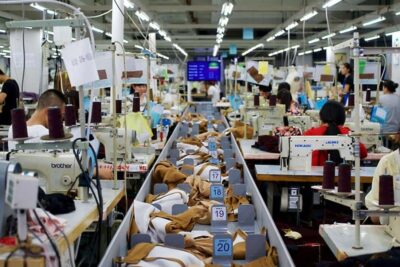>>REAL-TIME UPDATES IN THE WIRE. CLICK HERE<<<
China’s factory activity expanded at a slower pace in July, amid weaker growth momentum in production, new orders and employment, a private survey showed.
The Caixin/Markit manufacturing purchasing managers’ index (PMI) eased to 50.4 in July from 51.7 in the previous month, well below analysts’ expectations for a slight dip to 51.5.
The findings of the survey, which focuses on smaller and private companies, were slightly better than the government’s official PMI that mainly tracks state-owned companies that showed China’s factory activity unexpectedly contracting in July. Read more …
China’s manufacturing sector saw a rebound in June after widespread COVID lockdowns were lifted, but the recovery has started to fade amid fresh virus flare-ups, weakening domestic and global demand, and a persistent weakness in the property market.
The sub-indexes for production and new orders both declined significantly in July, though they remained above 50 mark that separates expansion from contraction. Surveyed companies said that sluggish demand, persistent impact of the Covid-19 outbreaks and power cuts have jointly reduced output.
The sub-index for employment hit the lowest since May 2020, due to staff shedding to cost cutting, subdued sales and the non-replacement of voluntary leavers, according to the survey.
That for purchasing prices of raw materials hit the lowest this year, though it remained in expansionary territory, while the sub-index for products’ factory-gate prices remained below 50 for the third consecutive month.
Due to the recent COVID flare-ups and the lack of stock and staff at suppliers, the time taken for purchased inputs to be delivered to manufacturers increased in July.
“The recovery in supply and demand failed to spill over into the labour market for manufacturing, which continued to shrink,” said Wang Zhe, senior economist at Caixin Insight Group.
“Companies, strongly inclined to lower costs in the face of sluggish market demand, were cautious about expanding their staff,” Wang added.
In one bright note, companies’ input costs rose only slightly after relentless prices rises that squeezed profit margins. However, they had to cut their selling prices for the third month in a row due to soft demand.

